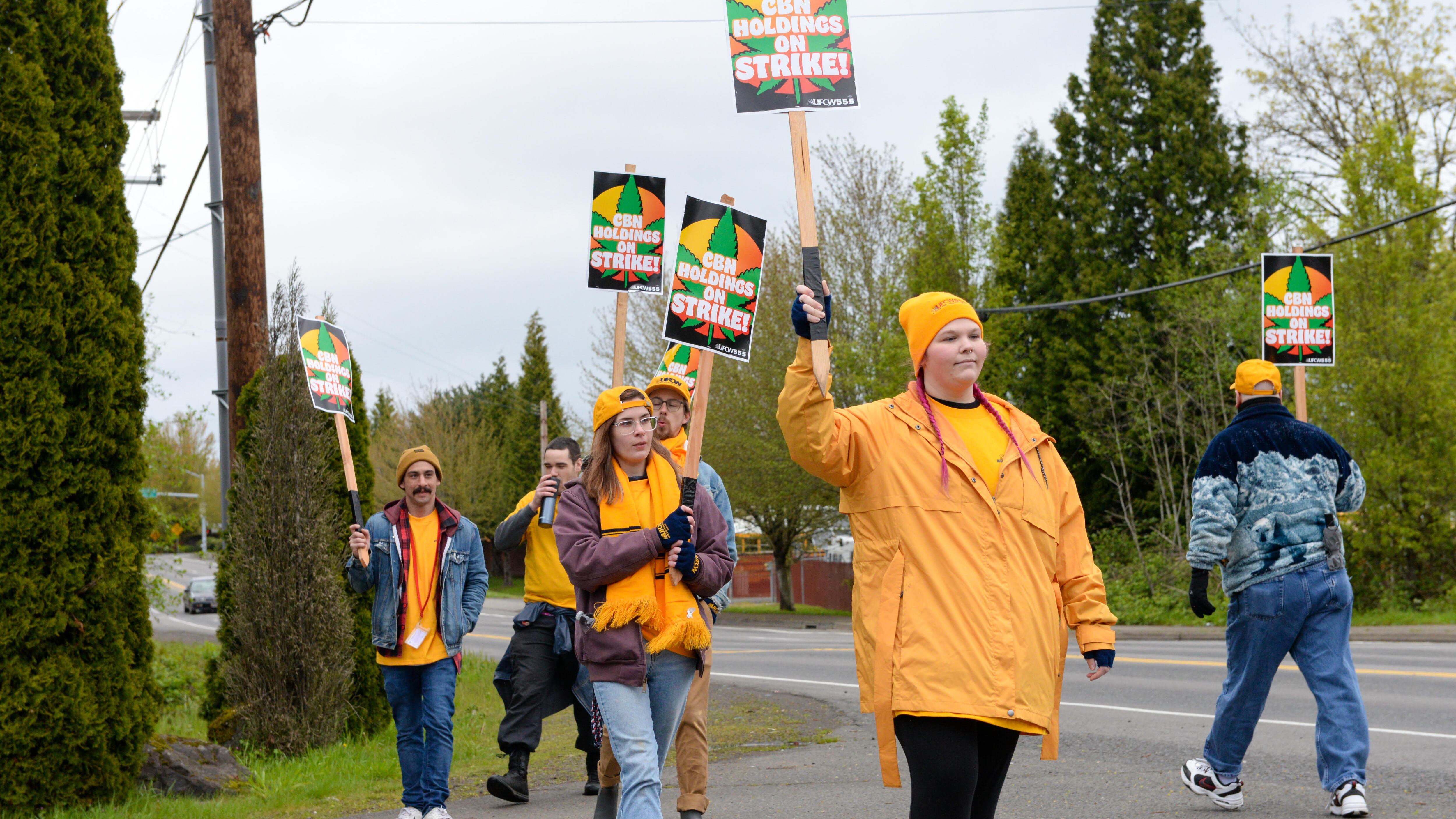Workers at a Gresham cannabis grow went on strike today, seeking union representation by United Food and Commercial Workers Union Local 555 and demanding recognition and bargaining from the parent company of the grow, Oregon-based CBN Holdings.
CBN Holdings is the parent company for six cannabis businesses in Oregon, including five dispensaries and the one grow in Gresham, according to Tyler Walker, its founder and a primary shareholder.
The union said close to 25 workers at the grow walked off the job this morning. Miles Eshaia, a spokesman for the union, tells WW workers delivered a demand letter this morning, but that the manager “refused to accept it. We have been in the process of organizing for almost two months.”
CBN Holdings shares a very different story. One of its owners, Matt Hurt, disputes the union’s narrative. He says only six employees walked out, not close to 25, out of 30 total employees at the cultivation site.
“This morning’s walkout, by a small group of six employees, was the first that any union has been mentioned and Cannabis Nation was completely unaware of any efforts to unionize,” Hurt told WW. “The union has not filed a petition or opened a line of communication with CBN at all. We have not been informed on what their demands are.”
Pictures provided by the union of the strike show about 10 people total, but not all of those are grow workers, the union noted. The people shown are wearing bright orange T-shirts and beanies and hold signs that say “CBN Holdings on Strike!”
When reached by WW in Arizona where he currently lives, Walker, the grow’s founder and a large shareholder, would not disclose the company’s annual revenue. He says the grow continues to operate despite the strike.
“It’s open and running and it will continue to do so,” Walker says. “We go in and actually do a lot of the production ourselves if need be. We try to give employment opportunities, and that doesn’t always work out. People see things different as an employee as an employer.”
According to the union, the striking workers include assistant growers, maintenance staff at the grow, and people working in post-production.
Local 555 said four employees who organized the strike were fired for dabbling in strike efforts. Hurt disputes that, too: “The allegation that the company terminated employees due to union efforts is completely false.” Hurt says they were fired for time theft.
“CBN Holdings is claiming that they let members go for something that other workers have not been penalized for in the past. It’s oddly convenient that those who were let go were the ones central to the union organization effort,” says Eshaia in response.
UFCW Local 555 represents just shy of 29,000 workers in Oregon, Washington, Idaho and Wyoming, many of them grocery workers. (The union led a short but highly public strike at Fred Meyer last year.) While Local 555 does represent a number of budtenders who sell cannabis products at dispensaries, the union does not currently represent any cannabis grow workers, says Eshaia.
“Dispensary workers can actually petition to get union recognition. But the growers themselves fall under agriculture, and agriculture doesn’t have an agency assigned to them to protect them,” says Eshaia. ”Measure 91 legalized marijuana, but workers at grow operations are left in legal limbo.”
Eshaia says Local 555 wants to be the union to represent the striking cannabis workers.
CBN Holdings declined to answer questions about the company’s annual sales and revenue, in which dispensaries its products are sold (other than its own five dispensaries), whether the strike was impeding production, or whether it intended to recognize the unionizing efforts and partake in contract bargaining.
